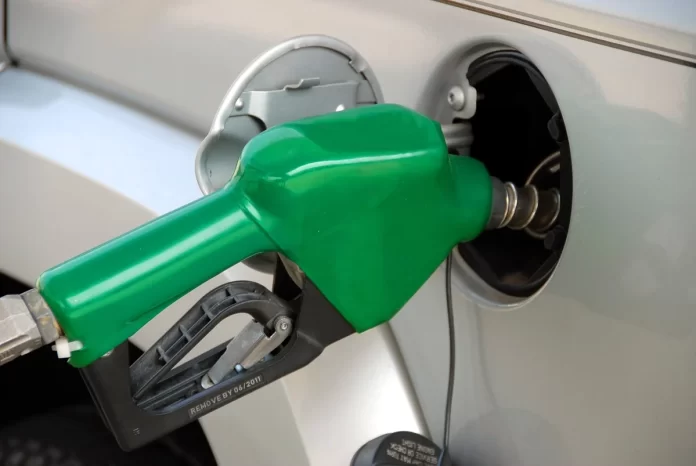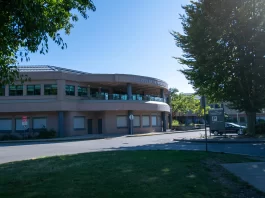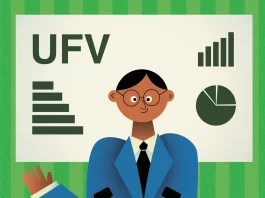Dr. Michael Batu is an economist and associate professor of Economics at the University of the Fraser Valley.
On his first day, Prime Minister Mark Carney signed an order to remove the federal carbon tax, which came into effect on Apr. 1. Since 2008, the carbon tax has increased what British Columbians paid on natural gas and gasoline. Professor Michael Batu spoke to The Cascade about the carbon tax removal and the economic and environmental effects this has on Canada.
Batu said that with the removal of the carbon tax, there will be consumers who will profit greatly from the reduced prices.
“The consumers will benefit because right away, they will see a decrease in the price of petroleum products. So, that will immediately affect consumers, especially those who commute [and] drive long distances.”
Originally, the carbon tax was projected to rise annually. In 2019, the cost for a tonne of carbon was $20; by 2030, this price was expected to rise to $170 per tonne. According to CBC News, after the carbon tax was lifted, the price of gas and gasoline also increased:
“As of March 31, when it ended, it added 17.6 cents a litre to gasoline and 15.25 cents per cubic metre to natural gas.”
However, Batu also underlined that removing the rebate associated with the carbon tax — a tax-free payment to residents intended to offset the costs of carbon pricing — could be a problem for low-income households.
“If you’re in the upper income brackets, you don’t receive the rebates at all. Rebates usually go to the individuals who are the lower income. So if you’re lower income, you would be hit hard by the elimination of the carbon tax, because you don’t get the rebate.”
He explained that the idea behind implementing the carbon tax was to encourage people to use less emissions.
“One feature of the carbon tax is that the government collects taxes from certain groups of people, and then it transfers some of it to folks who are in the lower part of the income [bracket] … it’s a form of income transfer, but also part of it is to change behaviour, because the idea is that if the price of oil is expensive, we will drive less.”
Batu mentioned that the government’s hope was to reduce pollution for future generations by taxing fuel and other carbon-emitting products so that people would adopt more eco-friendly lifestyles. However, the impact grew less evident with time.
Furthermore, Batu explained how the long-term data in British Columbia did not show any drastic reduction in carbon emissions over the years — but it did show an increase.
“[From] the latest data that we had, the greenhouse gas emissions were more than what we had in 2008.”
He said that the ultimate objective is to lower our carbon footprint while balancing affordability and accountability. Batu believes that future-oriented policies strike a better balance than completely removing carbon pricing.
Additionally, Batu stressed that short-term savings should not come at the expense of environmental responsibility, especially when future generations will feel the impact.
“We have to be responsible stewards of the environment because it’s not we who are going to suffer. It’s going to be the future generation. So, we need to come up with an equitable and fair mechanism so that it’s not as hurtful to us at the present as well as to the future.”
Batu explained that even if people want to go green, they do not always have the means or resources to do so, making the entire process slower than expected. The cost is just one of the multiple challenges; infrastructure is another major issue. Gas stations far outnumber charging stations, and bike lanes are limited and unsafe in most cities. The shift to a greener economy will remain difficult if there are no easily accessible alternatives to gas-powered vehicles, particularly for lower-income Canadians.
“These carbon taxes are just temporary. You need to have another track here, where you have the permanent solutions. Those, like I mentioned, infrastructure for green technologies you subsidize, especially for poor people … That’s what these policies are right now. They’re not lowering gas emissions because we’re so focused on the temporary solutions, we’re barely scraping the surface of the permanent solution.”
Batu concluded by emphasizing the importance for people to take care of the environment and the earth.
“We have to do our share to be sustainable, you know, because this is the only home that we have.”
Interviews have been edited for length and clarity.
Hello, I’m Gauri Sethi, a passionate staff writer at the Cascade responsible for writing content that resonates with the masses. Currently, I am pursuing business administration, but deep down, I am a person who loves expressing herself through writing.




